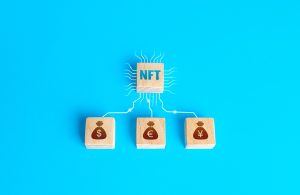NFT Renting: What You Need To Know


If you’ve been in the NFT community for any time, you know that purchasing and collecting NFTs is a costly undertaking. Even the cheapest non-fungible tokens from prominent non-fungible token projects, such as Cryptopunks or Bored Apes, are priced above the means of the typical collector. This is where NFT rental comes in, providing you with the advantages of an NFT (including the utilities) for a short time without the financial commitment of purchasing one. Let’s investigate this idea jointly.
What Does NFT Mean?
Individuals who do not own or hold a certain NFT but desire to employ its utility or experience it for a limited period may rent it via a protocol for NFT rental.
NFT rental markets use Defi blockchain technology to conduct safe transactions and guarantee that the NFT is return to its owner at the conclusion of the rental term.
Why rent an NFT?
The solution is straightforward: to earn money. For the lender, NFT renting generates passive income by enabling them to make money by renting out their NFTs.
It provides the borrower with the option to join the NFT community. Moreover, renting NFTs is a cost-effective approach to reap the advantages of some high-end NFT utilities without making a substantial initial investment.
On the other hand, some individuals may just need or choose to utilize an NFT for a certain purpose and duration. In this situation, renting provides them with on-demand access to the NFT.
The potential for NFT leasing is potentially huge. Digital art, metaverse regions, and in-game assets like characters and weapons are excellent possibilities for NFT rental. For play-to-earn initiatives, renting game assets may temporarily boost the player’s earning potential. An efficient rental system might also allow the lender to receive a portion of these revenues, providing the lender with an additional source of passive income.
“For the promotion of your NFT, check the best NFT Marketing Company.”
Working on NFT renting
There are two primary forms of NFT leasing: collateral leasing and non-collateral leasing.
Collateralized NFT leases
A tenant or borrower provides security to temporarily access the NFT of another individual. NFT owners may publish their NFTs on an NFT rental platform, such as IQ Protocol. Borrowers who are interested in the NFT can then commence the borrowing process, during which the asset is transfer to an NFT rental smart contract.
To safeguard the lender’s interests, the borrower must provide collateral with a greater value than the NFT. Additionally, the borrower must pay a specific leasing cost. After the expiration of the contract, the NFT has been restore to its original owner, and the borrower receives their collateral back.
Nonetheless, there are some hazards associated with the collateral model:
- As costly as the purchase price of the NFT community, the price of the NFT that the borrower promises as collateral may also be exorbitant. This may result in a decrease in the number of viable borrowers.
- The borrower may elect not to repay your nonrefundable deposit. Even if you have a backup guarantee, it is insufficient compensation when compared to the cost of a stolen digital asset. This is where collateral-free renting enters the picture.
Without collateral, NFT leasing
Collateral-free or collateral-less leasing follows a similar route to the collateral model and provides substantial advantages to both the asset owner and the borrower. In contrast to collateral renting, the renter or borrower does not get the original NFT. Instead, they are issued an NFT with the exact same attributes as the original asset.
The bundled NFT is incinerate upon contract expiration. The renter or borrower is not required to provide security, and neither the owner nor the lender must surrender the original asset. This reduces the monetary risks for both parties.
How to generate money with NFT rentals?
If you have in-demand or popular digital goods, you may make passive revenue by renting NFTs. Additionally, this notion is fashionable if you play “play-to-earn” NFT games since many of these games need a considerable initial commitment before you can begin earning money.
One approach would be to purchase the necessary NFTs and lend them to players who cannot afford to purchase them but still want to participate. In this instance, non-fungible tokens would be in-game assets, like characters or virtual territories, that provide players with a competitive edge during gameplay. In return for renting NFTs, participants provide the agreed-upon quantity of cryptocurrency.
What are the top NFT rental markets where NFTs may be rented?
Watch out for the following NFT rental platforms:
- reNFT – infrastructure for renting multichain NFTs in the metaverse ● UnitBox DAO – NFT rental protocol with a revenue-sharing mechanism ● Vera is a multichain Defi protocol for NFT mortgages and rents.
- Defi risk-free system for renting NFTs and fungible tokens without collateral.
- Defy is a decentralized multichain protocol that offers NFT renting, loan, and mortgage services.
Final Thoughts
The need for NFT rental markets is connect to liquidity and financial use cases. Hence NFT rental will continue to change and increase over time. In addition, NFT renting will enable anyone who desires to participate in the web3 growth, regardless of whether they own digital assets or have the financial means to purchase them.
Although our NFT marketplace does not provide rental services, we provide a more customized experience and wider exposure to bespoke NFTs than copies.




